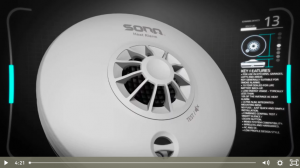Video Production Resources and FAQs
Video production resources for Poole and Bournemouth
The thought of getting a video produced for your business can be daunting, especially if you’ve never done it before or (worse) if you’ve had a bad experience. What’s more, there are a lot of video production resources needed for a successful project.
Unfortunately, many video production companies and digital marketers like to make you think that producing a video is more complicated than it is. Often, this is so they can usually charge exorbitant fees!
However, the good news is that video production need not be difficult, painful, or expensive. A good video production company will help you with all aspects of the production, from defining your audience and the creative elements to filming, editing, and delivery. And all for a reasonable price.
To help you, we’ve put together some hints and tips and links to video production resources to help you better understand the process of making a video and the things to consider along the way.
If you’d like to discuss any aspect of producing a video, we’re always here to help. If you’re on the lookout for video production in Bournemouth or Poole, then you’ll find us on your doorstep. From TV adverts in Dorset to web videos in Poole, we are your award-winning local company. Call us on 01202 805091 or email sales@elo.co.uk
Video production made easy; a simple guide
1. Define your objectives
The first thing to think about (and it sounds obvious) is the goal of your video. For example, do you want to increase sales of a product or service? Raise awareness of your brand or business. Or, maybe get your workforce to adopt a new customer service process?
Whatever your goal, it’s important to solidify your aims from the outset. This will then drive the decision-making process and keep the production focused. If you’re finding this difficult, it can be helpful to think about the problems you’re trying to solve or objections you’re trying to overcome.
In summary, ensure that your aims are:
- Well-defined and specific – distil down your goals to have a real focus on what you want from your video.
- Measurable – put some mechanism in place to measure success.
- Achievable – Be realistic about what can be achieved.
- Relevant – Make sure the goals are relevant to your overall business strategy.
- Time boxed – Give yourself a timeline so that things don’t overrun.
2. Know your audience
A significant key to success is to know your audience. This is a critical factor that is often overlooked. You want to produce a video that engages and appeals to your target audience; therefore, you need to understand who they are, what they like, and how they think.
Some of the most successful video production projects we’ve worked on have not been down to flashy production. But a simple understanding of the audience and a laser focus on appealing to them.
From here, it’s a simple task to incorporate your audience research into your new video.
Remember, do your research and get an insight into your audience. It works.
3. What is the core message of the video?
Your core message will be based on the objectives of the video. For example, if you want your viewers to sign up for a free trial of your software, you’re probably going to want them to think your product will make their life easier, save them time, money, or both.
Therefore, we’re likely to want your audience to feel excited after they’ve watched it. It’s a good idea to ask yourself the following:
- What action do you want your viewer to take at the end of your video?
- What do you want your audience to think? (e.g., “Wow, that’ll save me a lot of time”)
- What do you want them to feel?
As soon as you’ve defined this, this becomes the core message and the essential thing your viewers need to know. This will then turn into action.
4. Create a strategy for your video production
You’ll need to consider whether you’ll produce the video in-house or hire a video agency to handle the process. It’s worth noting that not all video production companies are made equal. We help our clients define the objective, understand their audiences, and build a core message. Talk to our team if you’d like to discuss any aspect of video production or help with your video production resources.
You’ll need to consider the best way to distribute your video (e.g., via social media, email, TV, online, or your website). How to possibly re-purpose your video for other campaigns, which helps maximise your budget. And, of course, what your budget is.
5. The video brief
This is a go-to guide for all involved and lays out the objectives, audience, and goals. It acts as a central bible for all concerned in the production.
It does not need to be too lengthy or complex. Some of the best briefs are short and to the point. Be clear about what you want from the video, and stay focused. Your video agency should be creating their entire production around the information in brief.
6. Ideas and creative
Your video production company should be able to take your brief and come up with a creative and well-thought-out way of delivering your objectives. Remember, you want to build on your audience’s insights and persuade them to act.
Don’t be afraid of being bold or taking inspiration from other successful campaigns. You want your video to stand out, be unique, and reflect the audience’s desires. Once you’ve nailed your idea, it’s on to the script.
7. Scriptwriting
The aims and objectives should influence your script’s messages, tone, and pitch. Scriptwriting is a specialist skill, and a good scriptwriter should understand this from the get-go. It should be human, natural, and emotive. It should also be easy to understand and concise. Above all, it needs to convey the core message.
Keep the audience at the front of your mind when reviewing the script. Does it solve their problems and answer their questions? The script produced for a marketing video production will be entirely different from a staff induction video.
8. Storyboard creation
Once the script is written, it’s a good idea to produce a storyboard. The storyboard is a mock-up of the video and is helpful to visualise elements of how the video will look. With almost all animation jobs, a storyboard is produced.
The storyboard could be created with illustrations, stock images, or even hand-drawn. It will include the voice-over on each frame and a shot description, details of music, sound, and special effects.
9. Planning the shoot
The planning for the shoot needn’t be complicated. An experienced video production company will be well versed in this process and can organise all aspects. We take the hassle out of this process by covering all aspects of the planning for the filming. We’ll advise you on what you need to organise. For example, if we were filming at your business, we’d map out the locations so you know exactly what happens where and at what time.
It may be you want special shots, such as aerial footage. Your video production agency should be able to pull the team together to make your video a success.
10. Filming
On the actual shoot days, you may (or may not) want to be present. Many of our customers like to be with us on a shoot to see the footage filmed.
There are no surprises because the filming is planned meticulously in advance, and there is a script and storyboard. The only thing that can’t be controlled is the unpredictable British weather! Again, there should be contingencies to account for changes to the weather on the day.
We provide video filming for Poole and Bournemouth as well as across Dorset. We come equipped (as standard) with our drone to get your cinematic aerial footage on the day. Please speak to us today about your next project.
11. Editing
When the shoot is complete, it’s time to put all the footage together in the edit. An experienced video editor should handle the editing. The editor may have been on the shoot, so they already have seen the footage. If not, they’ll have been fully briefed by the director and have the storyboard and script to work on.
The editor will make the video as concise and easily understood as possible. They’ll use different techniques depending on the type of video that is being produced. For example, an exhibition video will look different from a web video production.
If the video is being localised, video translation services may be required. The editor will prepare the video to be supplied to the translation agency.
Once the first draft of the edit is complete, you (as the client) have the opportunity to give feedback on the elements for any required changes. It’s always good to remind yourself of the original aims and objectives and keep these in mind.
If you’re looking for creative and reliable video editing in Poole and Bournemouth, then give us a call.
12. Motion graphics, animation, and special effects
Not every video will include special effects and animation. However, most videos have some elements of these. Animation could be motion-tracked labels that move with the action through to 3D elements that explain something.
We don’t recommend adding animation or special effects for its own sake, as often less is more. Our team will be on hand to advise you from the outset on how to take advantage of any animation, so it benefits the core aims of the production.
13. Audio post-production
During audio post-production, we’ll combine the music and sound effects to enhance the production. This should blend seamlessly with the footage and complement the video.
Sound effects can be authentic world sounds (such as a car alarm) or mood-enhancing effects, such as ambient sounds, that provide a subtle bed to heighten emotion.
Always try and consider that the audio production compliments your video’s mood and tone and helps get across the key messages to the audience.
14. Voiceover
A key element of most videos is the voice-over. You’ll always get a choice of voice-over artists, and these will have been whittled down in the first instance by the director.
Go back to your original aims for the video and consider the age of the voice, tone and pitch. They’ll need to relate to the audience.
15. Mastering and release
Once you’re happy with the video, it will be mastered and output for the uses you require. Remember, promote your video to your audience especially if you’re selling and product or service. You may want to advertise it on social media and your website. This is all key to getting your message to your audience and then letting the video do the job you set out to do.
Next steps
If you want a video produced, then we’d love to talk to you. We’ll help you with all of the key stages and deliver a video that’s fit for purpose and works. We’re a video production company based in Poole, near Bournemouth, and we work across the south coast.
You’ll benefit from our extensive experience regardless of the video you’re looking to produce. From bid and tender video production to staff induction videos to conference videos filmed at the BIC in Bournemouth and web video production, we can help.
Contact our friendly team today on 01202 805091 or sales@elo.co.uk today.





